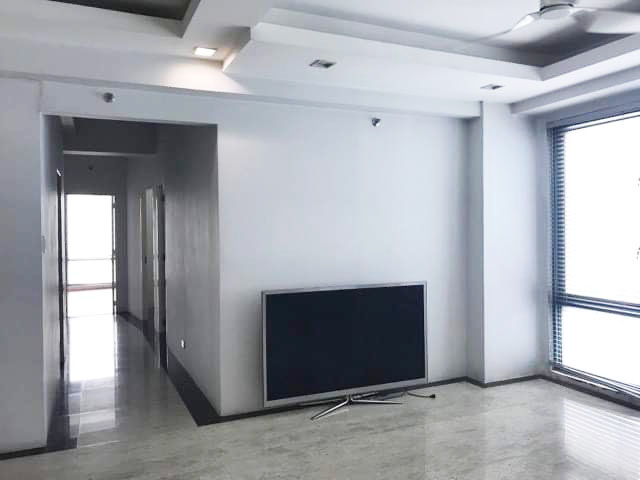Singapore’s property market is often seen as a bellwether for regional real estate trends, and with good reason. The city-state’s well-regulated market, coupled with its robust economic fundamentals, makes it a focal point for investors and homebuyers alike. As we look ahead to the next five years, several key factors will influence Singapore’s property market. In this blog post, we will delve into these factors and predict how the market might evolve by 2029.
Current Market Overview
Before diving into future predictions, it’s essential to understand the current landscape. As of mid-2024, Singapore’s property market has shown resilience amid global economic uncertainties. The government’s cooling measures, including stamp duties and stricter loan-to-value ratios, have managed to temper the market without causing a significant downturn. Property prices have experienced moderate growth, and the rental market remains robust, especially in prime locations.
Key Factors Influencing Future Trends
- Economic Growth and EmploymentEconomic performance is a significant determinant of property market dynamics. Singapore’s economy has shown steady growth, driven by its status as a global financial hub and a thriving tech sector. The continued expansion of industries like fintech and biotech will likely boost job creation and income levels, which in turn will support property demand. However, any global economic slowdown or trade tensions could pose risks to Singapore’s growth trajectory.
- Population and Demographic ShiftsSingapore’s population growth, driven by both natural increase and immigration, will impact housing demand. The government’s policies to attract global talent and skilled workers will continue to support population growth. Additionally, demographic changes, such as an aging population and smaller household sizes, will influence housing preferences. There is likely to be increased demand for smaller, more manageable homes and properties suited for multi-generational living.
- Government Policies and RegulationsThe Singaporean government has a history of actively managing the property market to ensure stability. Future policy measures will likely focus on maintaining market equilibrium, addressing affordability concerns, and promoting sustainable development. Policies that could impact the market include adjustments to cooling measures, incentives for first-time buyers, and measures to enhance property supply.
- Supply and Demand DynamicsThe balance between supply and demand will be crucial in shaping the property market. On the supply side, new developments and residential projects are expected to come online, particularly in the suburban areas and new towns. However, if demand continues to outpace supply, we might see upward pressure on property prices. The government’s efforts to increase land availability and promote private-public partnerships will play a role in addressing supply constraints.
- Technological AdvancementsTechnology is increasingly influencing the property market. Innovations in property management, smart home technologies, and real estate platforms are changing how people buy, sell, and manage properties. As Singapore embraces these advancements, there could be shifts in property preferences and values. For instance, properties with advanced home automation and energy-efficient features may become more desirable.
- Global Economic and Geopolitical FactorsSingapore’s property market is not immune to global influences. Economic fluctuations, geopolitical tensions, and changes in international trade policies can impact investor sentiment and cross-border property transactions. For example, uncertainties surrounding US-China relations or global financial instability could affect foreign investment flows into Singapore. Are you looking for more information regarding the property market, feel free to visit Emerald Of Katong to learn more.

Predictions for the Next Five Years
- Moderate Price GrowthBased on current trends and factors, we can expect moderate price growth in the Singapore property market over the next five years. While there will be periods of fluctuation, the overall trend is likely to be upward, driven by economic growth, population increases, and continued demand for quality real estate. However, this growth may be tempered by ongoing cooling measures and potential economic uncertainties.
- Increased Demand for Suburban PropertiesAs the city-state continues to evolve, there will likely be increased demand for suburban and regional properties. With the expansion of MRT lines and infrastructure development, areas outside the central business district will become more attractive to buyers and investors. This shift will also be driven by the rising cost of central properties and changing lifestyle preferences.
- Growth in Rental MarketThe rental market is expected to remain strong, supported by a steady influx of expatriates and foreign workers. Rental demand will be driven by Singapore’s attractiveness as a regional business hub and the expansion of industries that require skilled professionals. However, rental yields may fluctuate based on supply-demand dynamics and government regulations.
- Focus on SustainabilitySustainability will become a significant factor in property development and investment decisions. The government’s commitment to green building standards and eco-friendly developments will influence market trends. Properties that incorporate sustainable features, such as energy-efficient systems and green certifications, will likely see higher demand and potentially command premium prices.
- Technological IntegrationAs technology continues to advance, we can expect greater integration of smart home technologies and digital platforms in the property market. Buyers and renters will increasingly seek properties with modern amenities and technological features. Real estate companies will also leverage technology for more efficient property management and enhanced customer experiences.
Conclusion
The Singapore property market is poised for a dynamic five years ahead. With a combination of economic growth, demographic shifts, government policies, and technological advancements, the market will continue to evolve. While moderate price growth and increased demand for suburban properties are likely, the impact of global factors and ongoing policy measures will shape the market’s trajectory.
Investors and buyers should stay informed about these trends and be prepared to adapt to changing conditions. By keeping an eye on economic indicators, demographic shifts, and technological developments, stakeholders can navigate the Singapore property market effectively and make informed decisions for the future.
As always, consulting with real estate professionals and conducting thorough market research will be crucial for making strategic property investments in this evolving landscape.
